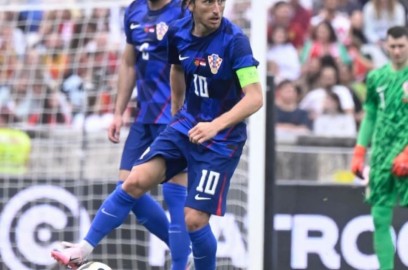
Enhancing on-field intelligence and the ability to make quick, accurate decisions under pressure are traits that separate exceptional players from the rest. Developing these skills is essential for reaching the pinnacle of football success. This article provides key strategies and training methods to help you improve your decision-making speed, reaction time, and game intelligence, enabling you to shine on the field.
### 1. DEVELOPING GAME INTELLIGENCE
Game intelligence is the ability to quickly understand situations, recognize space, evaluate opportunities, and turn them into advantages for your team. Improving this skill requires mental training and match experience.
#### a) Mental Training and Visualization
- **Tactical Analysis**: Learn to analyze tactics, not only of your team but also of your opponents. Understanding offensive and defensive strategies and anticipating their moves will help you make better decisions on the field.
- **Visualization**: Before matches, dedicate a few minutes to visualizing your plays. Imagine how you'll react in different situations — passing, dribbling, or shooting. Visualization strengthens your mental preparedness and boosts confidence during the game.
#### b) Spatial Awareness and Perception
- **Small-Sided Games**: Playing in tight spaces forces you to think and act quickly. Training in these conditions improves your ability to notice opportunities and adapt to high-pressure scenarios.
- **Movement Without the Ball**: Intelligent off-the-ball movement is crucial. Watch professional matches to analyze how players move without the ball, create space, and anticipate passes.
### 2. INCREASING DECISION-MAKING SPEED AND REACTION TIME
Game speed is not only about physical pace but also about mental sharpness and quick reactions. Great players can think several steps ahead and adapt instantly to changing situations.
#### a) Training Decision-Making and Reactions
- **1v1, 2v2, and 3v3 Drills**: These exercises require intense decision-making and fast reactions. Small-group games develop awareness, positional shifts, and quick adaptations to opponents' moves.
- **Ball Drills with Variable Scenarios**: Set up drills that involve different scenarios requiring immediate action, like switching directions, passing, or shooting. These situations build flexibility and reduce predictable play.
#### b) Observational Skills
- **Environmental Awareness**: Train yourself to constantly scan your surroundings, especially before receiving the ball. Developing this habit allows you to react faster and make better decisions before your opponent can intervene.
- **Timed Decision Drills**: Participate in drills where you must decide to pass or shoot within a split second. Regular practice builds confidence and sharpens your decision-making under time constraints.
### 3. MASTERING DECISION-MAKING UNDER PRESSURE
On the pitch, you rarely have the luxury of time. Opponent pressure and limited opportunities demand swift yet accurate decisions. Achieving this balance requires mental toughness and calmness.
#### a) Stress Simulation – Mental Training
- **Pressure Simulation Drills**: Training scenarios that mimic stressful match situations (e.g., outnumbered opponents) help prepare you mentally for high-pressure games. Focus on breathing and maintaining composure during such drills to remain clear-headed on the pitch.
- **Mental Games**: Use techniques like deep breathing or affirmations to stay calm under pressure. A calm mind makes better decisions.
#### b) Learning from Experience
- **Post-Game Analysis**: Review your decisions after every match or practice. Reflect on what worked and what could have been better. Learning from your mistakes and successes will refine your decision-making skills.
- **Patience and Composure Training**: Sometimes, the best decision is the one made with a moment's delay. Patience is key, especially when opponents try to force errors. Drills focusing on waiting for the right moment to pass or shoot cultivate patience and calmness.
### 4. ENHANCING AGILITY AND MOBILITY
Physical attributes, such as agility, speed, and the ability to change direction, support the development of game intelligence and decision-making. Improving these traits makes you more effective on the field.
#### a) Agility Training
- **Ladder Drills and Ball Exercises**: Agility ladder drills or drills with multiple balls improve coordination and agility. They also enhance reflexes and build habits for quick decision-making.
- **Swimming and Yoga**: These activities increase muscle flexibility and body control. Greater flexibility leads to faster reactions, while yoga fosters patience and inner peace, helpful in high-stress situations.
#### b) Reaction Speed Training
- **Reflex Exercises**: Reaction-based drills involving auditory or visual signals (e.g., changing direction after a signal) improve reflexes.
- **Reaction Tools**: Equipment like reaction balls or specialized reflex training tools can help develop faster response times to changing scenarios.
### CONCLUSION
Improving your game intelligence, decision-making speed, and accuracy under pressure is a long-term process requiring both physical and mental dedication. Regular training, analysis, and self-reflection will elevate your game to the next level. Remember, patience and consistent effort are key. By mastering these skills, you can transform into a player who not only reads the game but dominates it with precision and confidence.
If this guide helped you understand how to improve your decision-making and on-field intelligence, let us know! ????????
???? Comment below: What are your favorite drills or tips for improving game intelligence? Share your experience, and let’s inspire each other!
???? Hit that like button if you’re ready to take your skills to the next level!
Your feedback keeps us motivated to bring you the best advice for your football journey. ⚽???? Don’t forget to share this article with your teammates! ????





